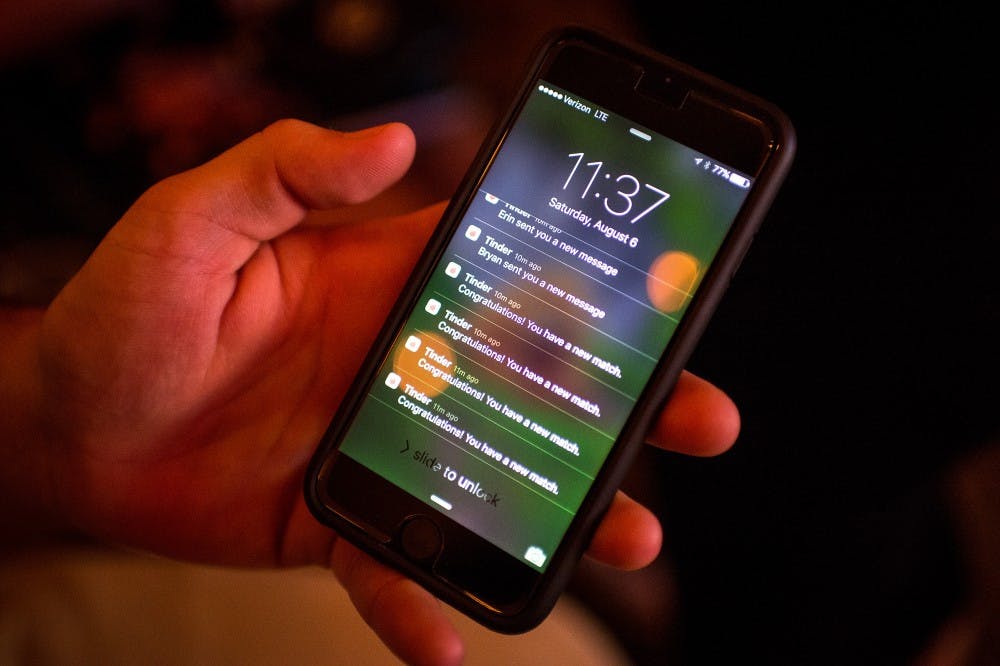Bumble and Tinder have taken this generation by swarm and wildfire, and the result has left our generation in a knot of social anxieties, protocol malfunctions, insecurities and confused feelings.
Dating — if it can be called that — via social apps seems to have become increasingly common among millennials, adding to the epidemic of phone-fixated students staring at their screens and swiping away.
Certainly, these apps provide an easy, fun, convenient way to meet new people — but it may be affecting the way we communicate. Introducing the “Tinder date” or analogously termed meet-up into our love lives has brought with it increased insecurities and stress — is asking to meet up actually asking them out? Is it taken to the same degree as a date? Who’s supposed to ask to meet first?
Ironically, with the invention of apps that let you choose who you talk to based on their appearance, or at least their appearance in pictures, these apps have essentially reinvented the blind date. With little more than a few snapshots of a person, likely taken to make them look their most attractive, and perhaps some one-liners, we agree to meet up with them somewhere, hoping we can actually recognize their face and not forget things you’ve already talked about.

This adds to the table worries such as whether they're actually who their profile says. Are they a creeper in real life and I just couldn’t tell by messaging them? Where’s a good, safe place to meet? If we go out to eat or get drinks, who pays?
The best part of all of this is that there is no protocol. It’s a new kind of interaction in uncharted territory. One benefit of this is you can interact however you feel is appropriate and make it what you want, but to the same token, you have no way of knowing how the other person will take it.
Communication becomes confusion because some things simply don’t translate into reality. Just like our moms told us about stranger danger, the people you meet on the internet aren’t always who they say they are. If this new “dating practice” is not a danger to our safety, it is certainly dangerous to our methods and fluency of conversation face-to-face. It’s a whole lot easier to say something by hitting some letters and emojis on a phone screen than it is to say it out loud, looking into someone’s eyes, with your own intentional or unintentional voice inflections.
These mediums of communication change the very ways we communicate, and even what we communicate, because they were designed with a superficial, attraction-based dynamic. Naturally, the ways we communicate on these apps don't always translate into real life—we may type one thing and say the other. This makes our communication with each other in real life more difficult.
So, are we actually representing ourselves on these apps the way we really are in real life? Would you say everything you typed while looking into that person’s face as they're sitting across from you? Even if you feel you're being your true self on the apps and in person, it's worth considering that the people you talk to may not be doing the same. The things we communicate and how we communicate them are often shaped by the medium we use. These apps influences how and what you communicate. The least you can do is consider whether you're comfortable with the outcome of these influences.

